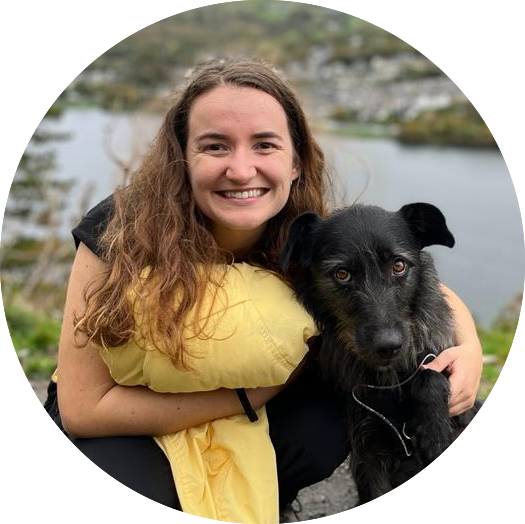Dr Charlie Wiltshire
Lecturer in Psychology

Overview
Dr. Wiltshire leads the Integrative Speech Research Group.
The Integrative Speech Research Group takes an interdisciplinary approach to studying the speech production system. We are interested in how the brain and vocal tract work to produce speech.
We use a range of methods, often combining them in novel ways, to address the entire speech system. The lab has expertise in:
Brain Imaging: fMRI, Multi-Parameter-Mapping, Diffusion Weighted Imaging, MRI-compatible fNear Infra-Red Spectroscopy. We have access to a research-dedicated 3T MRI in the basement!
Brain Stimulation: Transcranial Electrical Stimulation, Transcranial Magnetic Stimulation (Motor Evoked Potentials and repetitive protocols, MRI-guided technology)
Articulography: Vocal Tract (or Real Time) MRI, Electromagnetic Articulography
We work with typical speakers and those with diverse speech differences, including developmental and acquired stuttering and Parkinson's disease. We work closely with charities, such as STAMMA to develop and share our work.
We always use co-production methods when designing, running and sharing our work. Please get in touch if you are interested in working with us!
We host a Journal Club with STAMMA (The British Stammering Association).
Research
Dr. Wiltshire's research aims to understand the neural control of speech production, with a specific interest in developmental stuttering.
During her postdoctoral fellowship at the Institute for Phonetics and Speech Processing, Ludwig-Maximillains-University (LMU), Munich she combined brain stimulation techniques (Transcranial Magnetic Stimulation) and articulography (Electromagneticarticulography, vocal tract MRI) to investigate the neural processes underlying the initiation and inhibition of speech movements in people who stutter and people who are typically fluent.
Dr. Wiltshire completed her DPhil at the University of Oxford in 2020, with Kate Watkins. During her DPhil, she contributed to a large randomised control trial looking at whether tDCS can enhance fluency in people who stutter (INSTEP trial). Within this, she used a range of techniques, including tDCS, TMS and brain and vocal tract MRI, to investigate the neural control of speech in people who stutter and people who are typically fluent.
Contact Info
Email: c.wiltshire@bangor.ac.uk
Grant Awards and Projects
Below are active projects.
For past projects, see https://www.charlottewiltshire.com/research/research-summaries
Speech Movement Control in People who Stutter: Evidence from the Supplementary Motor Area. Funded by DFG (German Government Funding) and European Research Council (Horizon 2020).
Cognitive Flexibility and Stuttering Funded by DFG (German Government Funding) and European Research Council (Horizon 2020).
Movement control in people with developmental stuttering Funded by the Welsh Crucible. In collaboration with Swansea University and Cardiff Metropolitan University.
Investigating the experiences of Welsh-English bilinguals who stutter. Funded by the Welsh Crucible. In collaboration with Aberystwyth University.
Research Group/s
Integrative Speech Research Group: https://www.charlottewiltshire.com/home
Bangor Imaging Group: https://www.bangor.ac.uk/bangorimagingunit
Postgraduate Project Opportunities
Anyone interested in postgraduate opportunties with the Integrative Speech Research Group should contact c.wiltshire@bangor.ac.uk in the first instance to informally discuss potential topics/interests.
Education / academic qualifications
- 2020 - DPhil , Investigating Speech Motor Control Using Vocal Tract Imaging, fMRI, and Brain Stimulation (2001)
Research outputs (5)
- Published
Speaking to a metronome reduces kinematic variability in typical speakers and people who stutter.
Research output: Contribution to journal › Article › peer-review
Characteristics of articulatory gestures in stuttered speech: A case study using real-time magnetic resonance imaging
Research output: Contribution to journal › Article › peer-review
Elevated iron concentration in putamen and cortical speech motor network in developmental stuttering
Research output: Contribution to journal › Article › peer-review
Prof. activities and awards (3)
Neuroscience Spotlight at the Senedd
Activity: Talk or presentation › Invited talk
North Wales Speech and Language Exchange (External organisation)
Activity: Membership › Membership of network
The North Wales Speech and Language Exchange
Activity: Participating in or organising an event › Participation in Academic workshop, seminar, course
Accolades (2)
The Travers Reid Award 2020
Prize: Prize (including medals and awards)
American Speech-Language-Hearing Association Editor's Award: JSHLR, Speech Section
Prize: Prize (including medals and awards)
Projects (3)
British Council - Springboard
Project: Research
Movement control in people who stutter: a whole system approach
Project: Research

